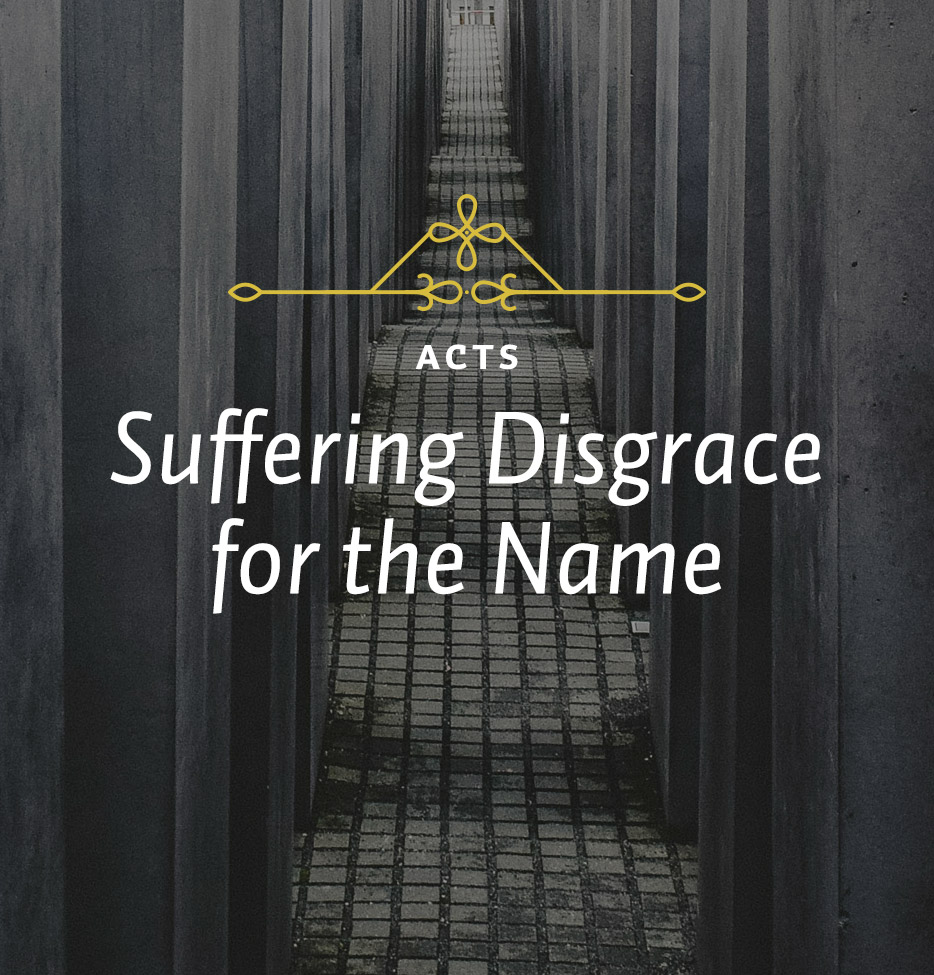As we concluded yesterday’s study we saw the Sanhedrin had the disciples arrested again, despite the fact that they had already escaped prison. The leaders began their accusations again, although this time the accusations go a step further.
They accuse the disciples, first of all, of disobeying orders: “We gave you strict orders not to preach in this name” (v. 28). That was a simple assertion of authority. It did not make any difference whether the apostles were right or wrong. They simply said, “We told you not to do it, but you’re doing it. You are in deep trouble.”
Then they went further to say, “Yet you have filled Jerusalem with your teaching and are determined to make us guilty of this man’s blood.” This is fascinating, because at the trial of Jesus Christ, this was the very thing they had willingly taken upon themselves. Pilate had said, “I am innocent of this man’s blood. It is your responsibility” (Matt. 27:24). They replied, “Let his blood be on us and on our children” (v. 25). Now it was, and they were appalled at the consequences.
What they were experiencing here is true of every human being. The blood of Jesus is upon us because we, like these Jewish rulers, have set our face against the Lord and His Anointed. That is what sin is. It is a way of saying, “I do not want this man to rule over me. I will break His bands and cast off His fetters. I will drive this Son of God from my life.” Today Jesus is not here to be physically mistreated. But that is what we want to do, and would do if we could. In the meantime, we at least turn our backs on Him and repudiate His rule.
The rulers told the apostles, “You … are determined to make us guilty of this man’s blood.” But they did not have to be made guilty. They already were guilty, and they knew it. We know they knew it by the way they were talking about “this name” and “this man.” They were guilty of murder, and they did not like the consequences at all.
Peter has a chance to give a brief sermon in his defense before the Sanhedrin (though it may have been considerably longer than the account Luke has preserved for us). It is a great sermon. It contains what in formal New Testament studies has come to be called the kerygma.
About fifty years ago, an English university professor from Cambridge named C. H. Dodd published a book entitled, The Apostolic Preaching and Its Developments.1 He studied these early sermons in Acts, plus the structure of the Gospels and the letters of the apostles Paul and John, and concluded (rightly most people believe) that there is a fixed structure to almost all New Testament presentations of the Gospel message, the kerygma. Kerygma is a Greek word meaning “proclamation” or, as we would perhaps more naturally say, a “message.” It is different, as Dodd distinguished it, from didachē, which means “teaching.” The latter word refers mostly to ethical instruction, the kind of thing we find in the Sermon on the Mount and large portions of the New Testament letters. Kerygma, by contrast, refers to the basic Gospel facts. These facts include Christ’s death for sins, His burial, His resurrection, His ascension to heaven, and that He was seen in His resurrected form by chosen witnesses. We find this proclamation pattern in 1 Corinthians 15, perhaps the clearest example. But it is also found elsewhere and is the basic structure for the four gospels. This was the basic Christian message to the world.
The reason this is important is that it is precisely what we find in Peter’s short sermon to the Sanhedrin. It had four elements:
1. The crucifixion (“whom you had killed by hanging him on a tree”).
2. The resurrection (“God … raised Jesus from the dead”).
3. The ascension (“God exalted him to his own right hand as Prince and Savior”).
4. The witnesses (“We are witnesses of these things”).
1C. H. Dodd, The Apostolic Preaching and Its Developments (New York: Harper & Brothers, 1935).






